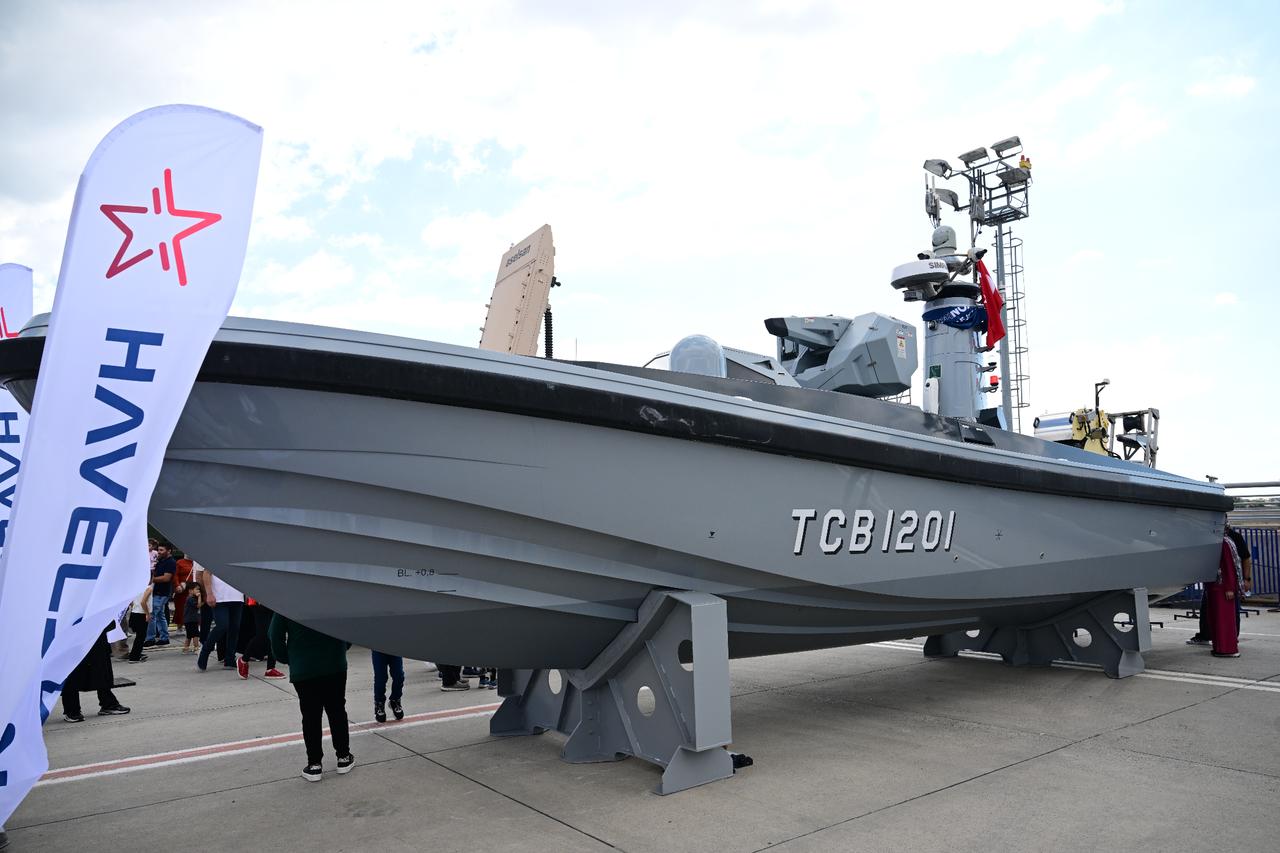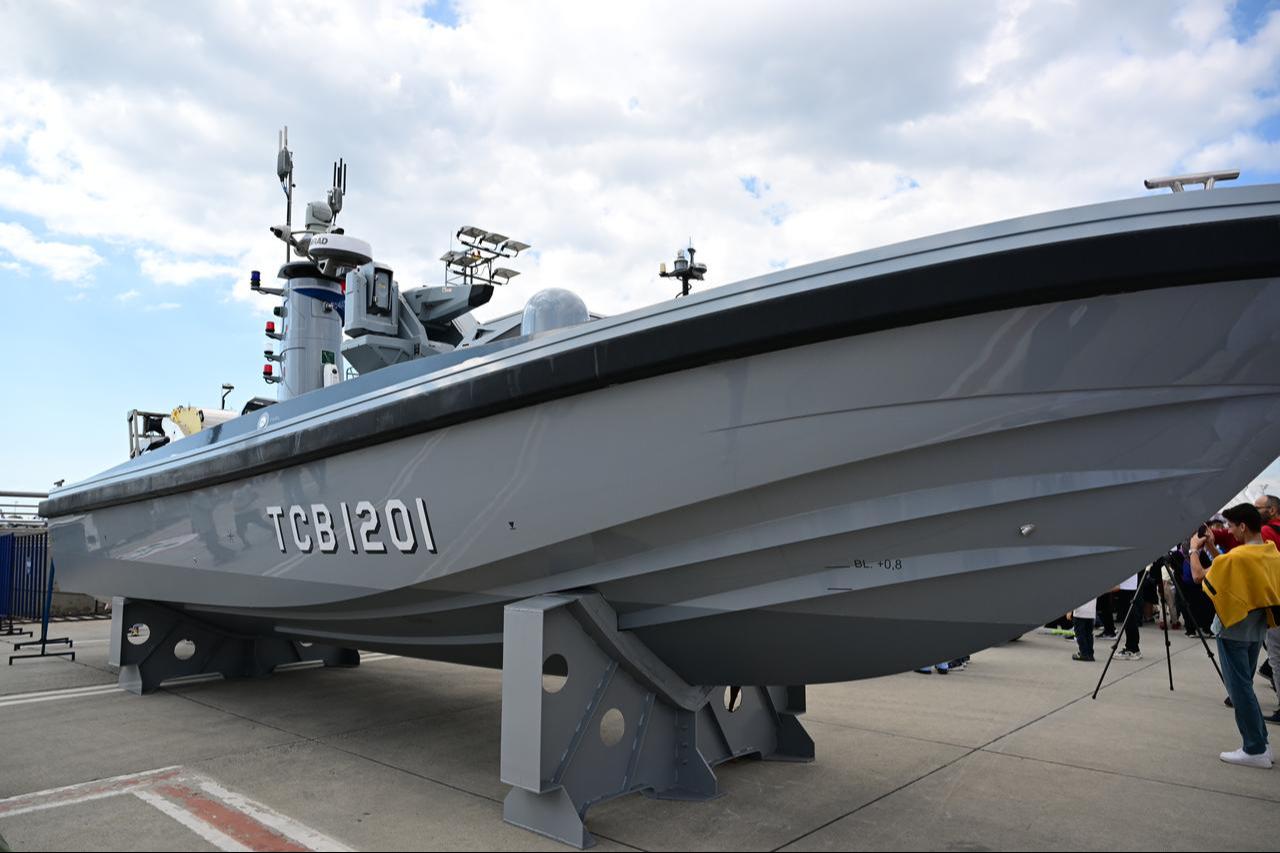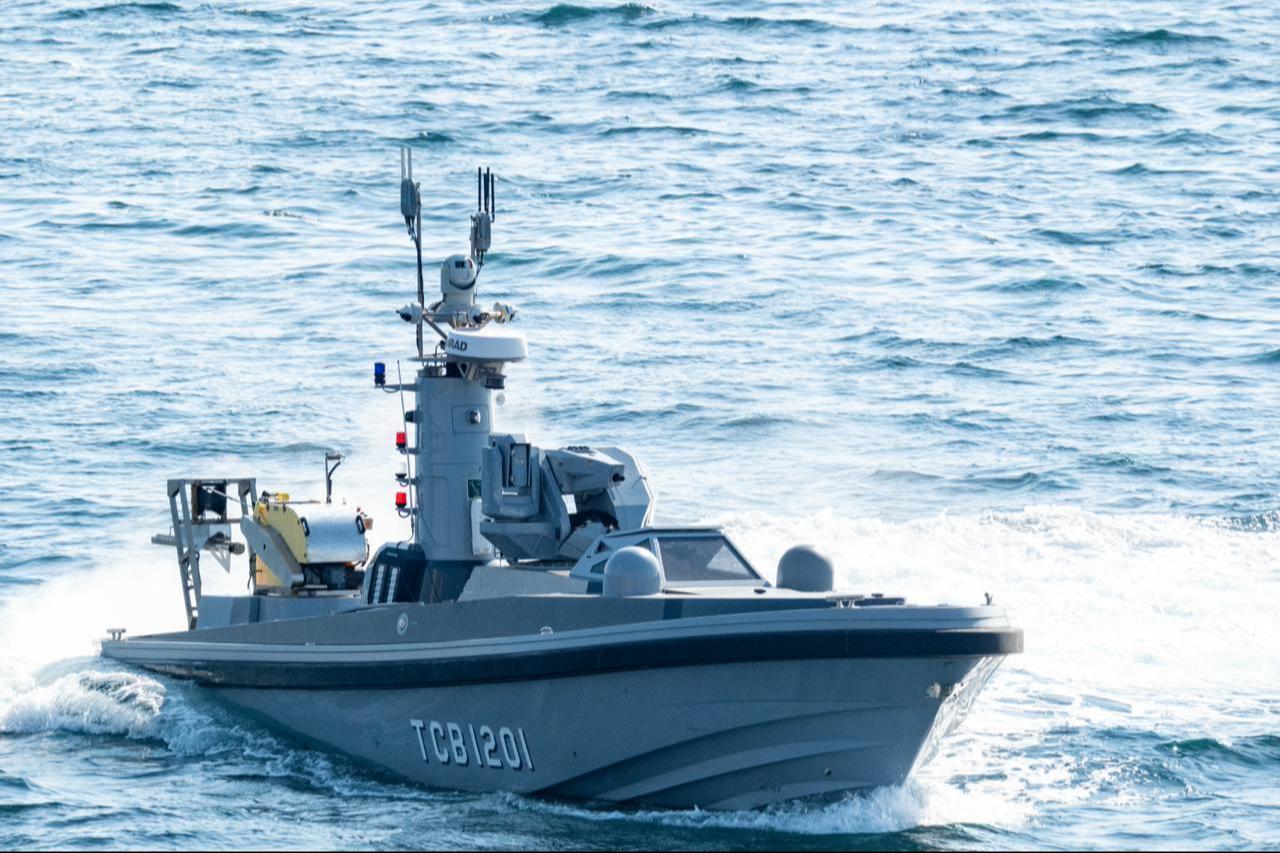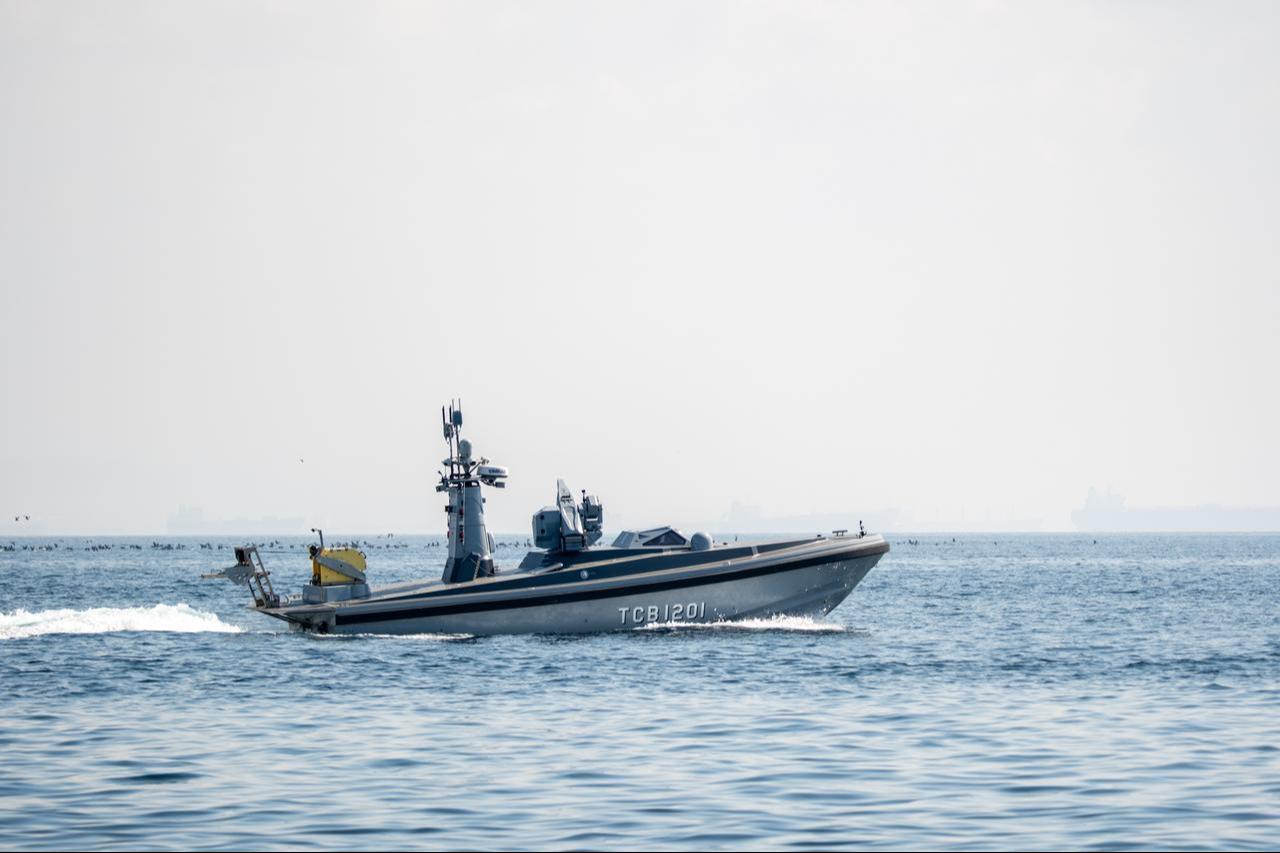
Türkiye's first armed unmanned surface vessel (USV) SANCAR has completed acceptance testing and will enter service to protect the nation's maritime borders, defense contractor Havelsan announced at the Teknofest aerospace festival, speaking to Turkish media outlet Türkiye daily.
The autonomous naval platform, developed jointly by Havelsan and Yonca Technical Shipyard, successfully completed firing tests with its 12.7 mm remote-controlled weapon system last week, clearing the final hurdle for operational deployment.

Havelsan CEO Mehmet Akif Nacar said SANCAR represents the company's first product in its unmanned maritime vehicle family and features full integration with the ADVENT combat management system used by the Turkish Navy.
"After this, when the system enters inventory, it can be directly integrated with that system and commanded from different ships, platforms, and aircraft," Nacar told reporters at Teknofest Istanbul.
"This is an important capability gain in terms of developing swarm intelligence and working integrated with other platforms," he noted.
The vessel incorporates five indigenous Havelsan systems, including the ADVENT Rota command and control software adapted for autonomous systems, Ship Data Distribution System (GVDS), NAUTIS ground control system, BLUEVISION autonomous navigation and GNSS-KASK precision satellite positioning.

SANCAR has attracted significant international interest, with several countries expressing serious engagement following demonstrations and exhibitions, Nacar revealed.
"We are intensively continuing our business development activities abroad. We definitely demonstrate SANCAR to delegations in Istanbul, and they see it in the field. When we go to exhibitions, we explain it and we have contacts. Some countries are seriously interested," he said.
The platform can operate independently or integrate with existing naval systems, offering flexibility for potential international customers.
Havelsan's ADVENT software suite is already in use by multiple countries.
SANCAR distinguishes itself from competitors through its mine countermeasure capabilities, using side-scan sonar to detect underwater threats and conduct necessary operations. The vessel can deploy from new-generation minehunting ships, providing significant operational capability.
"Our goal with this project was to scan the seabed using side-scan sonars, identify whether there are any harmful elements, and then carry out the necessary operations," Nacar explained.
The platform features 360-degree situational awareness through electronic cameras and artificial intelligence-enabled obstacle avoidance and friend-foe identification capabilities.

Havelsan is developing software for SANCAR in compliance with NATO interoperability standards, potentially expanding the platform's user base among alliance members.
The vessel will be delivered to its assigned unit following Teknofest Istanbul, where it was displayed after emerging from recent sea trials.
Beyond military applications, SANCAR holds potential for civilian logistics operations, Nacar indicated.
"In the civilian sector, such vehicles can be used for logistics purposes. We have a country and a platform we are discussing this with. Hopefully, those will be finalized, and we will share that news with you," he said.
The GNSS-KASK system, previously tested by TUBITAK teams in Antarctica, enables SANCAR to determine its position with precision satellite positioning.
The NAUTIS system provides ground command control, including winch control for deploying and retrieving sonars.
BLUEVISION enables autonomous navigation with obstacle avoidance and 360-degree situational awareness, while the GVDS connects all sensors, weapons, radar, electro-optical systems and sonars on the vessel.
SANCAR represents the first in Havelsan's planned family of unmanned maritime vehicles, with new products targeting both military and civilian markets under development.
"We have the capability set to make any platform autonomous from now on. It doesn't necessarily have to be this platform," Nacar stated, indicating the systems could be integrated into various existing naval platforms.